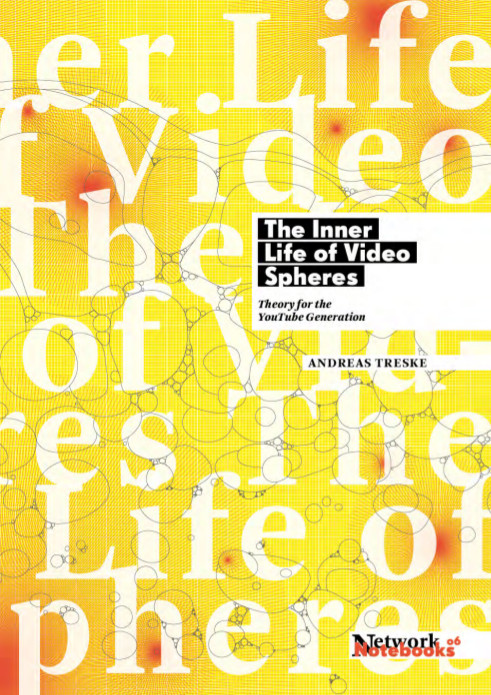Newton Lee: Facebook Nation: Total Information Awareness (2013)
Filed under book | Tags: · data mining, facebook, internet, privacy, search, social media, social networks, surveillance, web

“President Barack Obama, in his 2011 State of the Union Address, called America “the nation of Edison and the Wright brothers” and “of Google and Facebook.” U.S. Chief Information Officer, Steven VanRoekel, said that America has become a “Facebook nation” that demands increased transparency and interactivity from the federal government. Facebook as a nation in 2012 would be the third largest country in the world with over 900 million citizens, after China and India. This book portrays the social media ecosystem as a world of increasing Total Information Awareness, which is essentially a civilian version of the controversial Total Information Awareness program unveiled in 2002 by the Defense Advanced Research Projects Agency (DARPA) at the U.S. Department of Defense. Back in the 60’s, DARPA initiated and funded the research and development of Advanced Research Projects Agency Network (ARPANET) that went online in 1969. The success of ARPANET gave rise to the global commercial Internet in the 90’s and the new generation of Fortune 500 companies today including Amazon.com, Google, eBay, and Yahoo!. As if life comes full circle in the 21st century, private businesses and the ubiquity of social networks such as Facebook, Google+, Twitter, and YouTube are creating the technologies and infrastructures necessary for the DARPA-proposed Total Information Awareness program.
WikiLeaks founder Julian Assange called Facebook “the most appalling spying machine that has ever been invented.” Indeed, military and civilian technologies have interwoven into every fabric of our society, as Facebook co-founder and CEO Mark Zuckerberg said, “We exist at the intersection of technology and social issues.” This book offers discourse and practical advice on the privacy issue in the age of big data, the rise of Facebook nation, and Total Information Awareness. Opening with President Ronald Reagan’s 1984 National Security Decision Directive and ending with George Orwell’s novel 1984, the author takes us on a roller-coaster ride through Facebook’s botched IPO, Carrier IQ, Kony 2012, SOPA/PIPA blackout, cyber bullying, crime fighting, and a host of other timely issues facing our Facebook nation. Social media strategists, information architects, social scientists, policymakers, and academic scholars in the Program in Science, Technology, and Society (STS) will find this book a valuable asset.”
Publisher Springer, 2013
ISBN 1461453089, 9781461453086
235 pages
review (Will M, AllFacebook.com)
Comment (0)Giovanni Ziccardi: Resistance, Liberation Technology and Human Rights in the Digital Age (2013)
Filed under book | Tags: · activism, censorship, crowdsourcing, cyberwar, facebook, hacking, hacktivism, human rights, internet, internet activism, liberation technologies, open data, politics, resistance, social media, surveillance, technology, transparency, twitter, wikileaks

This book explains strategies, techniques, legal issues and the relationships between digital resistance activities, information warfare actions, liberation technology and human rights. It studies the concept of authority in the digital era and focuses in particular on the actions of so-called digital dissidents. Moving from the difference between hacking and computer crimes, the book explains concepts of hacktivism, the information war between states, a new form of politics (such as open data movements, radical transparency, crowd sourcing and “Twitter Revolutions”), and the hacking of political systems and of state technologies. The book focuses on the protection of human rights in countries with oppressive regimes.
– Deals with digital resistance activities all over the world
– First book to describe political and human rights issues in Egypt, Tunisia, Cuba and Yemen
– A critical analysis of the WikiLeaks case
Publisher Springer, 2013
Volume 7 van Law, Governance and Technology series
ISBN 9400752768, 9789400752764
328 pages
via Marcell Mars via Jaromil
Andreas Treske: The Inner Life of Video Spheres. Theory for the YouTube Generation (2013)
Filed under book | Tags: · online video, social media, video, youtube

Video is everywhere, like a space in which we move, an ocean we can dive into. But video is no longer the video we once knew. To address this techno-social shift, Andreas Treske sketches the outlines for a philosophical and practical understanding of online video, offering up a theory for the YouTube generation.
Video is examined up close and as a societal phenomenon. The images of a video constantly refer to other images, to the user and to the world outside. There is a ‘thickening of the image’. Videos also exist in relation to each other. On YouTube each video is accompanied by dozens of suggestions commercials and comments. Or consider TED-talks: every presentation refers to many others, all connected in a network and easily changing from one hype to the next.
Useful for comprehending this relational context is the philosophy of Peter Sloterdijk, who describes human society in terms of ‘spheres’. Online video can be understood as similar to bubble stuck to other bubbles, coming together to from foam within the connected sphere of the human environment.
Most prominent effects so far is video as a means of protest in the squares of the world, where revolution is filmed an uploaded in real time. Video isn’t a defined movie-object watched individually, but a movement of millions of video simultaneously, causing a cascade of reaction throughout the world.
Publisher Institute of Network Cultures, Amsterdam, February 2013
Network Notebooks 06
Creative Commons Attribution-NonCommercial-NoDerivs 3.0 Unported License
ISBN 9789081857536
56 pages

